|
|
| |
|
| |

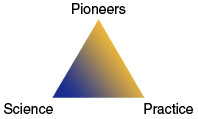
SpringerBriefs on
Pioneers in Science and Practice (PSP)
Edited by
Hans Günter Brauch
Free University of Berlin and AFES-PRESS
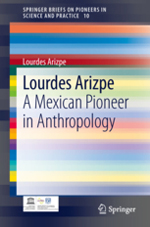 |
Lourdes Arizpe Schlosser: Lourdes Arizpe Schlosser: A Mexican Pioneer in Anthropology. Springer Briefs on Pioneers in Science and Practice No. 10 – presented by Margarita Velázquez Gutiérrez (Cham – Heidelberg – New York – Dordrecht – London: Springer-Verlag, 2013).
ISBN (Print): 978-3-319-01895-9
ISBN (Online/eBook): 978-3-319-01896-6
DOI: 10.1007/978-3-319-01896-6
Order Form
Order this book on the Springer Website
Order electronic version and individual chapters
|
On the author
On this book
Website of Lourdes Arizpe |
Important Links on Lourdes Arizpe Selected
Videos with Lourdes Arizpe Books by Lourdes Arizpe
Books by Lourdes Airzpe in Spanish, English and in other languages
Publications on Lourdes Arizpe
|
Lourdes Arizpe’s comprehensive scientific bibliography is here
- Reviews the anthropological research of a pioneering Mexican anthropologist on the occasion of her 70th birthday
- Incorporates her major texts on indigenous peoples and cultures, migration, women's studies, on cultural and social sustainability and intangible cultural heritage as social capital
- Includes texts published after 1972 in the US, Europe, Latin America and India, and recent unpublished presentations
This book presents major texts by Prof. Dr. Lourdes Arizpe Schlosser, a pioneering Mexican anthropologist, on the occasion of her 70th birthday. She is a leading researcher into indigenous peoples, an innovator in women’s studies and a global scientific leader who has inspired the international research and policy communities. Throughout her distinguished career she has analysed ethnicism and indigenous peoples, women in migratory flows, cultural and social sustainability and intangible cultural heritage as social capital, placing these issues on the world agenda for research and policy. Several of the 12 major texts in this volume have been published since 1972 in the US, Europe, Latin America and India; some were first published in Spanish and are available in English for the first time. This anthology also includes recent unpublished texts on culture, development and international cultural policy delivered at high-level international meetings.
Content Level » Research
Keywords » Cultural Policy - Indigenous Cultures - Migrations - Perceptions of Environment -Women in Development
Related subjects » Anthropology & Archaeology - History of Science
TABLE OF CONTENTS
A Brief Biography of the Author.- Selected Bibliography of Lourdes Arizpe Schlosser.- The Dialogue on the Diversity of Cultures and Civilizations.- On the Cultural and Social Sustainability of World Development.- The Global Cube.- The Culture of the Ax, the Machete, and the Sling.- Relay Migration and the Survival of the Peasant Household.- Agrarian Change and Women’s Rural Out-migration in Latin America.- Women in the Informal Labour Sector: the Case of Mexico City.- Cultural Change and Ethnicity on Rural Mexico.- The Challenge of Cultural Pluralism: The First National Congress of Indigenous Peoples 1975.- Perception and Ideology in Interethnic Relations.- Indian Cultures in Mexico City.- Zacatipan Kinship Terminology: A Dual Approach. |
| |
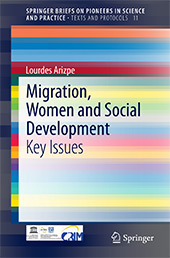 |
Lourdes Arizpe Schlosser: Migration, Women and Social Development: Key Issues. Springer Briefs on Pioneers in Science and Practice No. 11. Subseries Texts and Protocols No. 5 (Cham – Heidelberg – New York – Dordrecht – London: Springer-Verlag, 2014).
ISBN (Print): 978-3-642
ISBN (Online/eBook): 978-3-642
DOI: 10.1007/978-3-642-
Order Form
Order this book on the Springer Website
Order electronic version and individual chapters |
|
| |
This book presents a selection of major research texts, published and unpublished, by Prof. Dr. Lourdes Arizpe Schlosser, a Mexican Pioneer in Anthropology. A global intellectual leader on culture, social development, sustainability, women’s studies and indigenous groups, her texts provide both an outlook on the evolution of specific social scientific concepts and historical debates and a long-term and meta-analytical perspective integrating academic and policy discussions. By linking debates from different fields, the book helps readers to understand why people and groups make the choices they make and how the principles of social life must change to meet the challenges that new generations face in building social sustainability and effective environmental management in the twenty-first century.
Content Level » Research
Keywords » Cultural Policy - Indigenous Cultures - Migrations - Perceptions of Environment -Women in Development
Related subjects » Anthropology & Archaeology - History of Science
TABLE OF CONTENTS
Preface - Part I: Migration and Development: The World Is Becoming a More Dangerous Place: Culture and Identity among Mexican Migrants in the US -- The Rural Exodus in Mexico and Mexican Migration to the United States -- Migration, Gender and Global Crises Part II: Women and Development: Women Moving Across Boundaries: Movements and Migrations -- Feminism: From the Outcry of the Seventies to the Strategies for the Twenty-first Century -- Women Workers in the Strawberry Agribusiness in Mexico -- Mexican Agricultural Development Policy and its Impact on Rural Women Part III: Social Development: A Society in Movement: an Anthropological Perspective of Mexican Development -- How to Restore Social Sustainability in Mexico -- The Social Dimensions of Population Part IV: Sustainable Development: Population and Natural Resource Use -- Human Dimensions of Global Change -- Culture and Sustainability Universidad Nacional Autonoma de Mexico (UNAM) -- Centro Regional de Investigaciones Multidisciplinarias (CRIM) -- On the Author -- On this Book |
| |
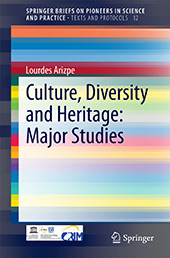 |
Lourdes Arizpe Schlosser: Culture, Diversity and Heritage: Major Studies. Springer Briefs on Pioneers in Science and Practice No. 12. Subseries Texts and Protocols No. 6 (Cham – Heidelberg – New York – Dordrecht – London: Springer-Verlag, 2014).
ISBN (Print): 978-3-642
ISBN (Online/eBook): 978-3-642
DOI: 10.1007/978-3-642-
Order Form
Order this book on the Springer Website
Order electronic version and individual chapters |
|
| |
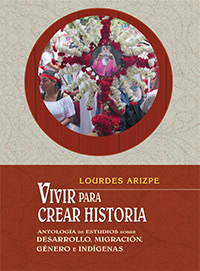 |
Lourdes Arizpe
Vivir para crear historia.
Antología de estudios sobre desarrollo,
migración, género e indígenas
2015, CRIM/UNAM - Miguel Ángel Porrúa
ISBN: 978-607-02-7302-5
Páginas: 712
Precio: $500.00
Existencia: Disponible
Extracto en PDF:
Ficha catalográfica: Arizpe S., Lourdes, autor.
Vivir para crear historia: antología de estudios sobre desarrollo, migración, género e indígenas / Lourdes Arizpe. -- Primera edición.
páginas. 712 (Serie las ciencias sociales. Tercera década).
ISBN: 978-607-02-7302-5 (UNAM)
ISBN: 978-607-401-991-9 (MAP)
1. Desarrollo sustentable -- México 2. Desarrollo sustentable -- Aspectos sociales -- México. 3. México -- Emigración e inmigración. 4. Mujeres en el desarrollo sustentable -- México. 5. Indios de México-- Condiciones sociales 6. Multiculturalismo -- México. I. Título. II. Serie
HC140.E5.A75 2015
LIBRUNAM 1788401
Reseña: La reconocida antropóloga social Lourdes Arizpe Schlosser es precursora en los estudios sobre desarrollo sustentable y pieza clave en un importante movimiento de revitalización de las ciencias sociales en México y Latinoamérica que vincula la investigación con la acción ciudadana. La autora inició estudios antropológicos sobre las migraciones, la equidad de género, los reclamos de los grupos indígenas y de la sociedad civil, y las percepciones sociales sobre la sustentabilidad. Gran parte de su obra fue escrita a través de su participación internacional, por ejemplo, en la Comisión Mundial para la Cultura y el Desarrollo, en el Grupo de Personas Eminentes para el Diálogo de las Civilizaciones, en la Comisión de Naciones Unidas de Políticas de Desarrollo y en la UNESCO, en donde apoyó la creación de la Convención Internacional para la Salvaguarda del Patrimonio Cultural Inmaterial y los trabajos sobre diversidad cultural. Lourdes Arizpe, a través de sus investigaciones, analiza con bisturí por qué se detuvo el desarrollo del campo y de la transición democrática, recoge una memoria imprescindible para las ciencias sociales y ofrece propuestas para restaurar la sustentabilidad social en el país. Vivir para crear historia permite redescubrir un México dividido y convulsionado que aún no encuentra salida a los múltiples problemas de la desigualdad, la conviviabilidad, la identidad cultural y la participación social. |
|
| |

|
Lourdes Arizpe is a professor at the Regional Center for Multidisciplinary Research of the National University of Mexico. She received an MA from the National School of History and Anthropology in Mexico in 1970 and a PhD in Anthropology from the London School of Economics and Political Science, UK, in 1975. She has pioneered anthropological studies on migration, gender, rural development, and global change and culture in Mexico, in Latin America, and in international research groups, both academic and policy-oriented. Professor Arizpe taught at Rutgers University through a Fulbright grant in 1979 and carried out research in India and Senegal with a John F. Guggenheim grant in 1981. She was director of the National Museum of Popular Cultures in Mexico 1985–1988.
She was elected President of the National Association of Ethnologists of Mexico in 1986 and Secretary to the Mexican Science Academy in 1992. Professor Arizpe was Director of the Institute of Anthropological Studies at the National University of Mexico, was elected President of the International Union of Anthropological and Ethnological Sciences in 1988, and successfully organized its World Congress in Mexico in 1993. Lourdes Arizpe became a member of the United Nations Commission on Culture and Development, and soon afterwards was designated Assistant Director General for Culture at UNESCO 1994–98. She was elected President of the International Social Science Council for 2004–2008, and participated as a member of the Academic Faculty of the Global Economic Forum at Davos, Switzerland 2000–2004. At the United Nations Institute for Research on Social Development, she was Chair of the Board 2005–2011 and a member of the Committee for Development Policy of the Economic and Social Council. She is a member of the Board of Trustees of the Library of Alexandria in Egypt. Lourdes Arizpe became an Honorary Member of the Royal Anthropological Institute of the UK in 1995, and has received the Order of “Palmes Académiques” from France in 2007, the Award for Academic Merit of the Universidad Veracruzana in Mexico, and an Honorary Doctorate from the University of Florida at Gainesville in 2010.
|
| |
Important Links on Lourdes Arizpe
Selected Videos with Lourdes Arizpe
-
-
-
Presentation on 11 September 2012 at the UNAM CRIM/AFES-PRESS Workshop on Sustainability Transition and Sustainable Peace Workshop: Towards a Fourth Sustainability Revolution and Sustainable Peace by
Prof. Dr. Lourdes Arizpe Schlosser, UNAM/CRIM, Cuernavaca, Mexico: Material and Immaterial Cultural Transformation
-
Selected Interviews with Lourdes Arizpe
|
| |
Selected Books by Lourdes Arizpe in English |
| |
|
|
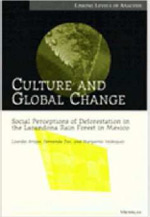 |
With María Fernanda Paz; Margarita Velazquez:
Culture and Global Change: Social Perceptions of Deforestation
in the Lacandona Rain Forest in Mexico
(Ann Arbor: The University of Michigan Press, 1996), 115 p. |
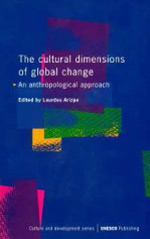 |
(Ed.): The Cultural Dimensions of Global Change:
an Anthropological Approach
(Paris: UNESCO, 1996), 259 . |
| |
|
|
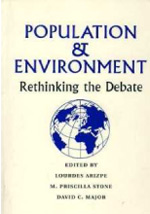 |
Population and Environment: Rethinking the Debate
David C. Major, Lourdes Arizpe, M. Priscilla Stone
(Boulder: Westview, 1994). |
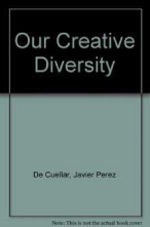 |
Javier Perez De Cuellar, Lourdes Arizpe,
Yoro K. Fall, Kurt Furgler, Celso Furtado
Our Creative Diversity
(Paris: UNESCO 1997). |
| |
|
|
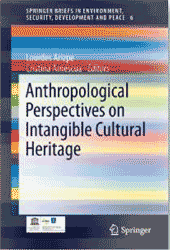 |
Lourdes Arizpe – Cristina Amescua (Eds.):
Anthropological Perspectives on Intangible Cultural Heritage
(Heidelberg – Dordrecht – London – New York: Springer-Verlag, 2014). |
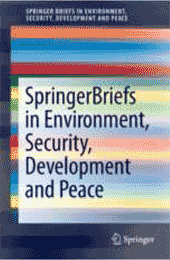 |
Lourdes Arizpe:
Conviviability: Rethinking Culture, Justice and
Freedom in a Cosmopolitan World.
(Cham – Heidelberg – New York – Dordrecht – London: Springer-Verlag, 2014). |
| |
|
|
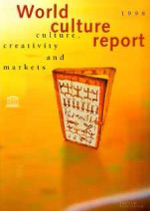 |
World Culture Report, vol. 1
(Paris: UNESCO, 1998).
World Culture Report, vol. 2
(Paris: UNESCO, 2001 |
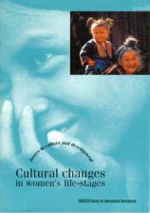 |
Cultural changes in women´s life-stages,
coord. Seminar Report.
Presented at the U.N. Women’s Conference, 1995. . |
| |
|
|
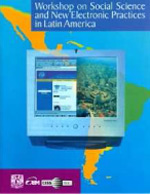 |
Workshop on Social Science and
New Electronic Practices in Latin America,
coord. Seminar Report. 2003. |
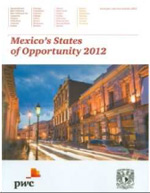 |
“Interview: Lourdes Arizpe: Mexican Culture:
Strong enough to survive in the Era of the Internet”,
in: Mexico´s State’s of Opportunity 2012
(México: UNAM – PricewaterhouseCoopers S.C.): 80-83. |
| |
|
|
Selected Books by Lourdes Arizpe in Spanish |
| |
|
|
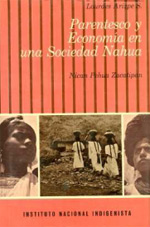 |
Parentesco y Economía en una Sociedad Nahua
(Mexico City: Instituto Nacional Indigenista, 1972), 225 p.;
republished as: Parentesco y Economía en una Sociedad Nahua
(Mexico City: Instituto Nacional Indigenista, 1990). |
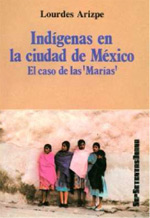 |
Indígenas en la Ciudad: el caso de las Marías
(Mexico City: Sepsetentas, 1975), 180 p.;
republished as: Indígenas en la Ciudad: el caso de las Marías
(Mexico City: SEP Ochentas, 1982). |
| |
|
|
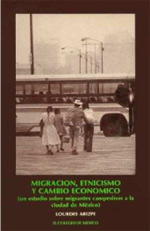 |
Migración, Etnicismo y Cambio Económico:
Un estudio de migrantes campesinos a la ciudad de México
(Mexico City: El Colegio de México, 1978), 261 p. |
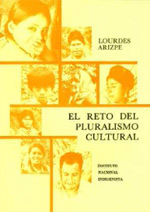 |
El Reto del Pluralismo Cultural
(Mexico City: Instituto Nacional Indigenista, 1978), 76 p. |
| |
|
|
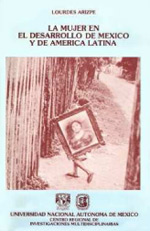 |
La Mujer en el desarrollo de México y
de América Latina
(Mexico City: CRIM-UNAM, 1989), 271p. |
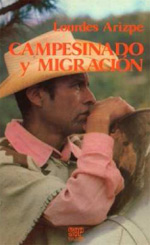 |
Campesinado y Migración
(Mexico City: Secretaría de Educación Pública, 1986), 153 p. |
| |
|
|
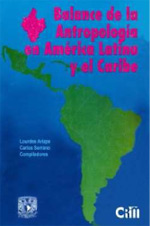 |
With Carlos Serrano (Eds.):
Balance de la Antropología en América Latina y el Caribe
(Mexico City: CRIM- UNAM, 1993), 590 p. |
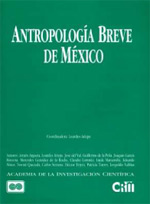 |
(Ed.): Antropología Breve de México
(Mexico City: Academia de la Investigación Científica, 1993), 398 p. |
| |
|
|
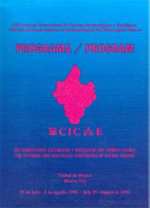 |
Dimensiones culturales del cambio global:
una perspectiva antropológica
(Mexico City: CRIM-UNAM, 1997), 430 p. |
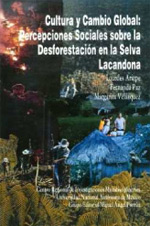 |
Cultura y Cambio Global:
percepciones sociales sobre la
desforestación en
la selva lacandona
(Mexico City: CRIM- UNAM –Miguel Ángel Porrúa, 1993), 230 p. |
| |
|
|
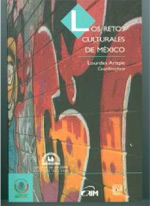 |
(Ed.): Los retos culturales de México
(Mexico City: Cámara de Senadores – CRIM- UNAM –
Miguel Ángel Porrúa, 2004), 388 p. |
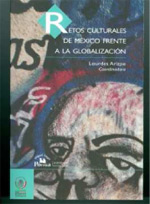 |
(Ed.): Los retos culturales de México frente a la globalización
(Mexico City: Cámara de Diputados – CRIM- UNAM –
Miguel Ángel Porrúa, 2006), 627 p. |
| |
|
|
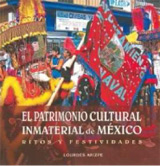 |
Compartir el Patrimonio Cultural Inmaterial de México:
Ritos y Festividades
(Mexico City: Cámara de Diputados – CRIM- UNAM –
Miguel Ángel Porrúa, 2009), 249 p. (2nd edition, 2011). |
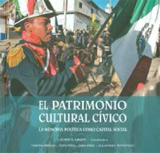 |
(Ed.): El Patrimonio Cultural Cívico:
la memoria política como capital social
(Mexico City: Cámara de Diputados – CRIM- UNAM –
Miguel Ángel Porrúa, 2011), 178 p. |
| |
|
|
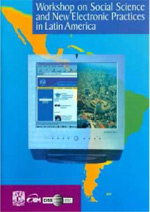 |
(Ed.): Libertad para Elegir:
Cultura, Comunicación y Desarrollo Humano Sustentable
(Mexico City: United Nations Development Program, 2010) 244 p. |
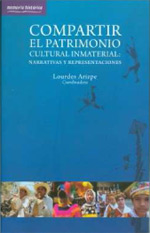 |
(Ed.): Compartir el Patrimonio Cultural Inma terial:
Narrativas y representaciones
(Mexico City: Dirección General de Culturas Populares e Indigenas,
CONACULTA- CRIM- UNAM, 2011), 328 p. |
| |
|
|
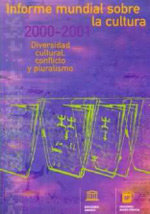 |
Informe Mundial de Cultura de la UNESCO, vol. 1
(Paris: UNESCO, 2001) |
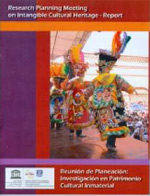 |
(Ed.): Compartir el Patrimonio Cultural Inmaterial:
Narrativas y representaciones
(Mexico City: Dirección General de Culturas Populares e Indigenas,
CONACULTA- CRIM- UNAM). |
| |
|
|
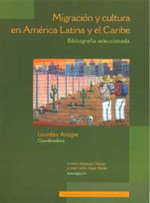 |
Bibliography on Culture and Migration in
Latin America and the Caribbean,
coord. Mexico: CRIM-National University of Mexico. |
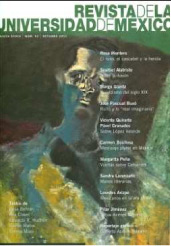 |
“Los Mexicanos en la Era Global”
in: Revista de la Universidad de México (October, 2011). |
| |
|
|

Centro Regional de Investigaciones Multidisciplinarias
The Regional Center for Multidisciplinary Research (CRIM) is an academic institution ascribed to the Coordination of Humanities at the National Autonomous University of Mexico (UNAM). It is located in the City of Cuernavaca inside the Morelos Campus of UNAM. Its objectives are:
-
Focus on multidisciplinary research in social sciences, humanities and other disciplines, mostly aimed at tackling specific problems at the local, regional, national and international levels, and their implications within globalization processes.
-
Contribute to the creation of knowledge in relevant and innovative arenas addressing social problems that require the convergence of different disciplines for their study.
-
Contribute to the development of a multidisciplinary approach to humanities, and focus on the development of innovative theoretical and methodological perspectives.
-
Participate in education programs so as to contribute to the academic training of professionals in social sciences, humanities and other disciplines.
-
Disseminate by all possible means the results of CRIM’s research projects
Website: <http://www.crim.unam.mx>.
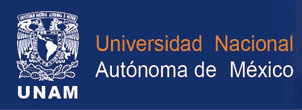
Universidad Nacional Autonoma de Mexico (UNAM)
The National Autonomous University of Mexico (UNAM) was founded on September 21st, 1551 under the name Royal and Pontifical University of Mexico. It is the biggest and most important university in Mexico and Ibero-America.
As part of the Centennial Celebrations of Mexican Independence, the National University was officially created on September 22, 1919. With the intention of widening educational opportunities in the country, the effort to launch the National University, though often hampered by adversity, was initially spearheaded by Congressman Justo Sierra in 1881. His vision finally materialized in 1910 with the inauguration of the National University of Mexico at a ceremony held in the National Preparatory School Amphitheatre, where as Secretary of Public Instruction, Sierra told the audience that the thrust of the National University’s educational project was to concentrate, systematize and disseminate knowledge in order to prepare the Mexican people for the future. One-hundred years after the creation of the University, Justo Sierra’s inaugural address still rings true: (…) we are telling the university community today that truth is unfolding: go seek it (…) you have been charged with the realization of a political and social ideal which can be summed up thus: democracy and liberty.
The fundamental aim of the UNAM is to serve both the country and humanity, train professionals, organize and carry out research, mainly on national problems and conditions, and offer cultural benefits in the broadest sense possible.
Website: <http://www.unam.mx>
|
|
|